Philip Chang
University of California San Diego
Department of Physics
Mayer Hall Addition 5516
Dr. Philip Chang is an experimental particle physicist who studies the fundamental forces of nature and its building blocks. He has been a member of the CMS Collaboration at the Large Hadron Collider (LHC) of the European Organization for Nuclear Research (CERN) in Geneva, Switzerland. In the past, Chang had also been a member of ATLAS Collaboration at the CERN LHC.
Philip's full CV can be found here (pdf).

At Torre de Belem c. 2012 (Photo by S. Y. Kim)
Research Overview
Chang's primary focus is on the investigation of the electroweak and the Higgs sector of the Standard Model (SM) through studying production of multiple massive particles. He has been involved in several searches and measurements of multiboson (boson = W, Z, H) signatures at the LHC.
1. Triboson physics
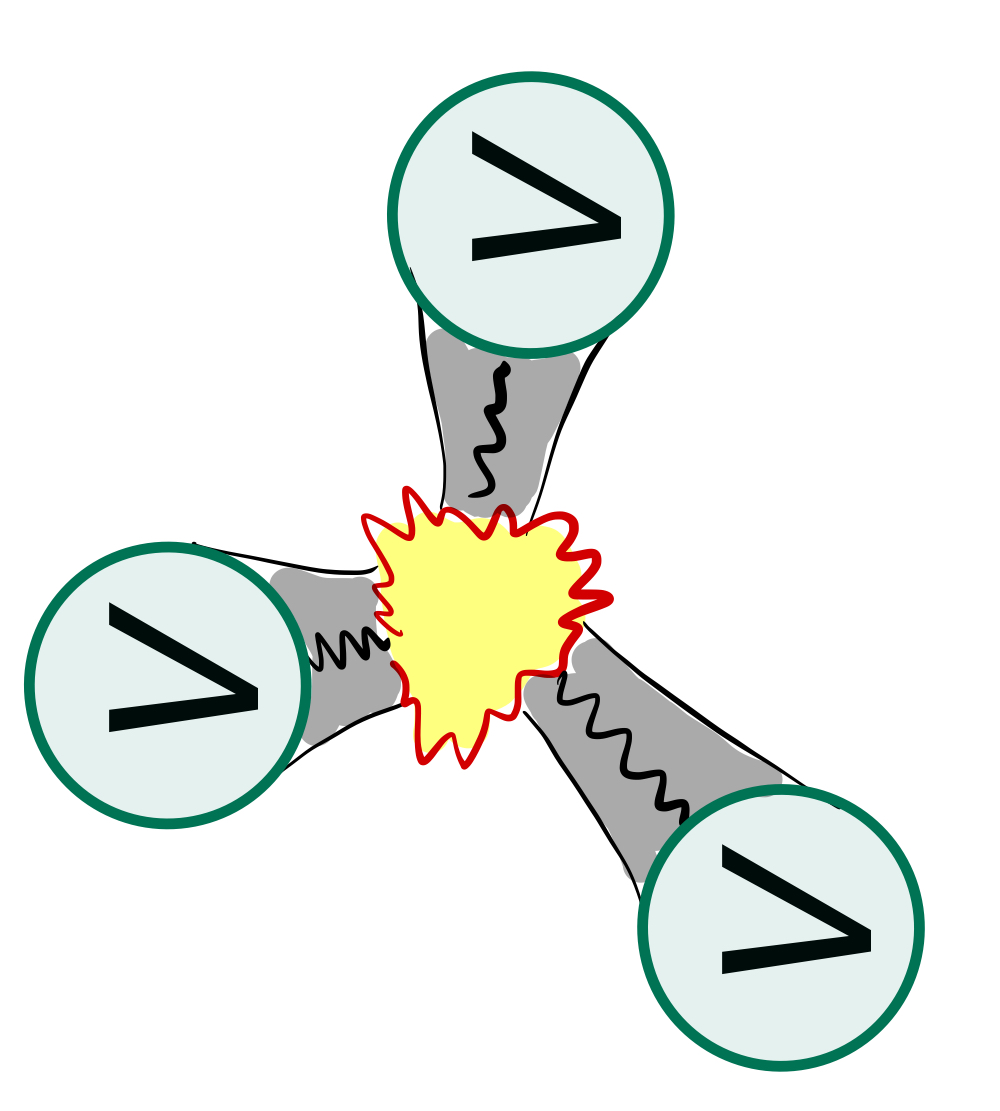
In CMS, Chang et al. have initiated the effort in search for the production of three massive gauge boson VVV (V = W, Z) processses and led a team of analyzers as the analysis contact person.
The search resulted in the first observation of VVV process and first evidence for WWW and first evidence for WWZ processes.
This observation establishes a groundwork for a new triboson physics program at the LHC and will produce many more measurements for years to come.
News coverage and press releases on Chang's work on three massive gauge boson:
- Phys.org: https://phys.org/news/2020-12-triple-threat-massive-gauge-bosons.html
- APS Physics Magazine: https://physics.aps.org/articles/v13/s124
- CMS Press Release: https://cms.cern/news/triple-treat-cms-observes-production-three-massive-vector-bosons-0
- CERN Press Release: https://home.cern/news/news/physics/search-new-physics-through-multiboson-production
- CERN Courier: https://cerncourier.com/a/lhc-physics-shines-amid-covid-19-crisis/
- UCSD Physical Sciences: https://dps.ucsd.edu/media-events/articles/2020/uc-san-diego-physicist-making-a-mark.html
[To read more click here]
2. Higgs boson physics
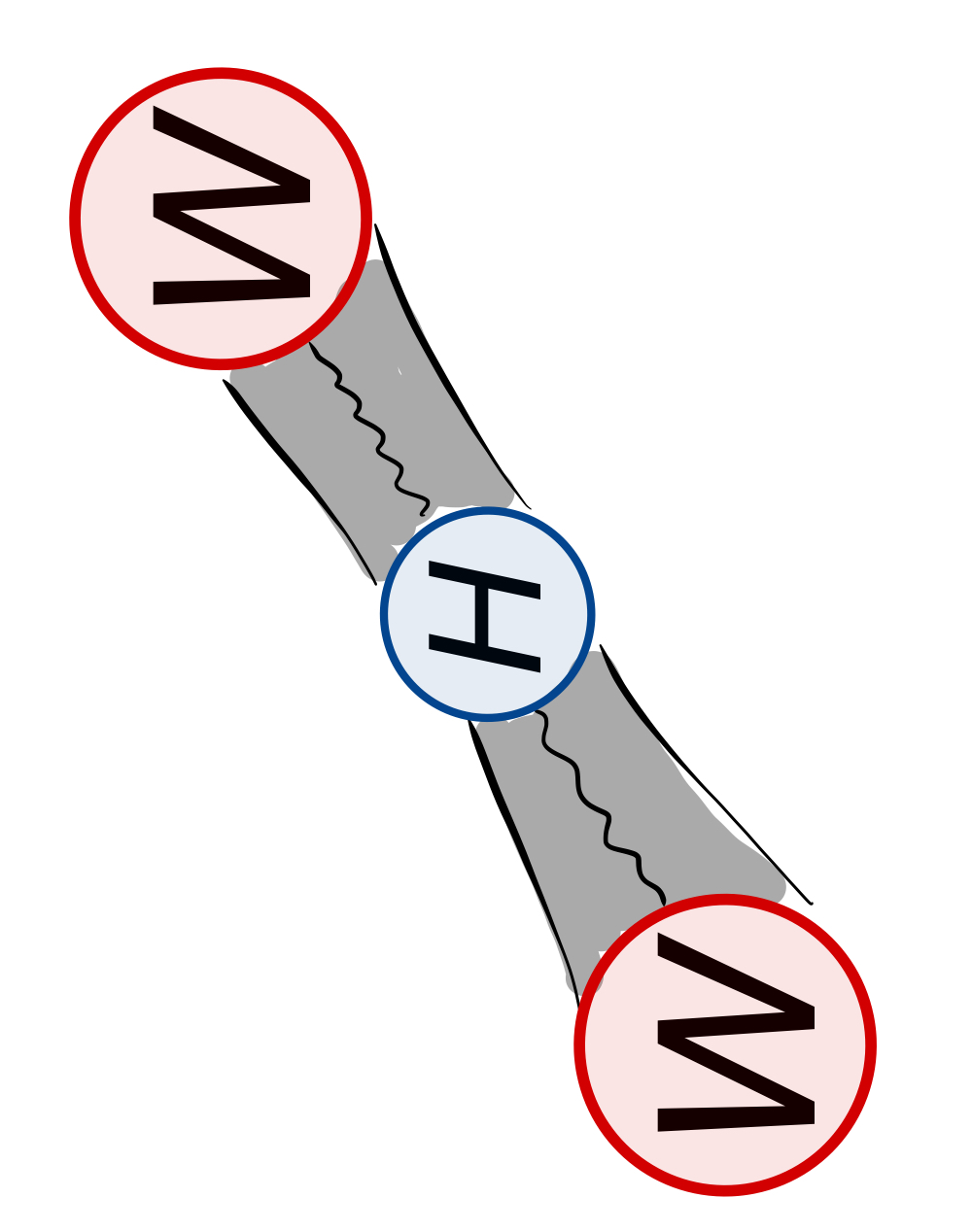
In the past in ATLAS, Chang has also contributed to the discovery of the Higgs boson by studying its WW decay mode. He also significantly contributed to establishing the first observation of H→WW* and first evidence for vector boson fusion (VBF) H→WW*, which provided the most stringent constraint on Higgs Yukawa coupling strength at the time. He also searched for an extended Higgs sector, which might elucidate the nature of dark matter by using the Higgs boson as a tool.
News coverage and press releases on Chang's work on H→WW:
- CERN Courier (H→WW): https://cerncourier.com/a/atlas-observes-and-measures-h-ww/
- ATLAS Physics Briefings: https://atlas.cern/updates/briefing/new-atlas-precision-measurements-higgs-boson-observation-ww-decay
- UIUC Physics Department News: https://physics.illinois.edu/news/article/1741
[To read more click here]
3. Charged Particle Tracking on GPU / FPGA and Trigger Work
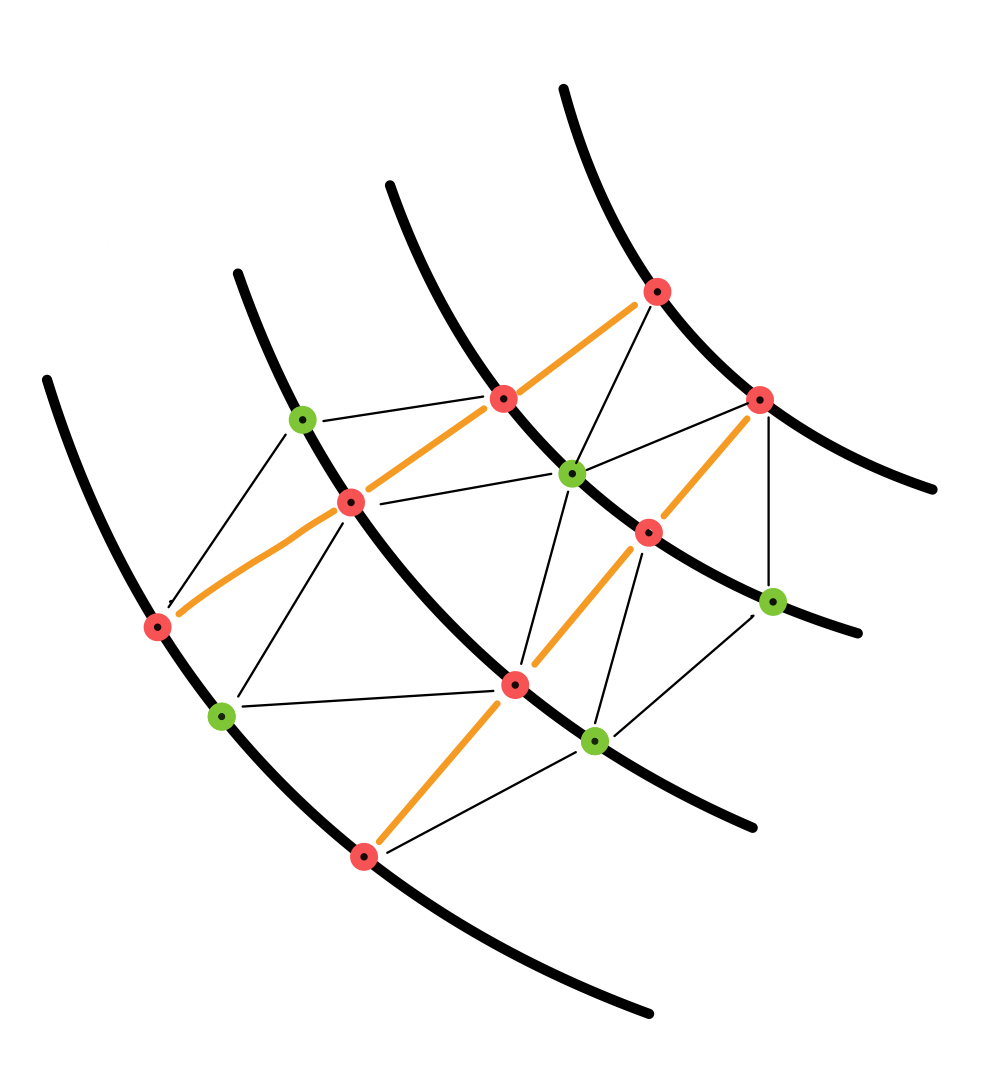
On a more technical side, Chang has been developing a parallel track finding algorithm (IRIS-HEP project) to address the challenges of exponentially increasing computing resource usage at the High-Lumi LHC (HL-LHC). He also participated in hardware-based track finder development for the ATLAS trigger system called the Fast TracKer (FTK) in its firmware and optimizing the second stage track finding algorithm. In the past, he has also contributed to trigger system as well. He coordinated the effort of designing VBF triggers for the Run 2 data taking.
Presenations on Chang's work on parallel charged particle tracking algorithm
- 18 Nov 2021 - "Line segment tracking for Phase-II Tracking", Philip Chang, HLT Upgrade Workshop (CMS restricted)
- 3 Nov 2020 - "Line segment tracking for Phase-II Tracking", Philip Chang, HLT Upgrade Workshop (CMS restricted)
- 21 Sep 2020 - "Update on Segment Linking for HL-LHC", Philip Chang, Tracking POG meeting (CMS restricted)
- 23 Jun 2020 - "Update on Segment Linking for HL-LHC", Philip Chang, HLT Upgrade Workshop (CMS restricted)
- 20 Apr 2020 - "Parallelizable Track Pattern Recognition in High-Luminosity LHC", Philip Chang, Connecting The Dots 2020
- 3 Dec 2019 - "Segment linking for Phase-2 Tracking", Philip Chang, HLT Upgrade Meeting (CMS restricted)
- 2 Dec 2019 - "Segment linking for Phase-2 Tracking", Philip Chang, CMS Tracker Week - Tracking POG meeting (CMS restricted)
[To read more on parallel tracking click here]
[To read more on trigger work click here]
CMS Experiment
Search for VVV production
The rare production of three massive gauge bosons VVV (V=W, Z) at the CERN LHC is interesting as it involves cubic and quartic interactions of massive gauge bosons as well as Higgs boson to gauge boson couplings via VH→VVV process. These multiboson interactions arise from the non-abelian character of the SM and through spontaneous symmetry breaking of SU(2) × U(1). If new physics is present at the high energy scale, the measurements of the VVV production cross section might deviate from SM predictions.
Chang has worked on the analysis and led the analysis team as the analysis contact person to establish the first observation of the VVV production in proton-proton (pp) collisions with 5.7σ. The team covered a multitude of final states covering same-charge dilepton, three, four, five, and six leptons final state. The work also established the first evidences for WWW and WWZ production with 3.3σ and 3.4σ, respectively. This opens up a new physics program where cubic/quartic gauge boson interaction and the interaction between gauge boson and Higgs boson can be studied.
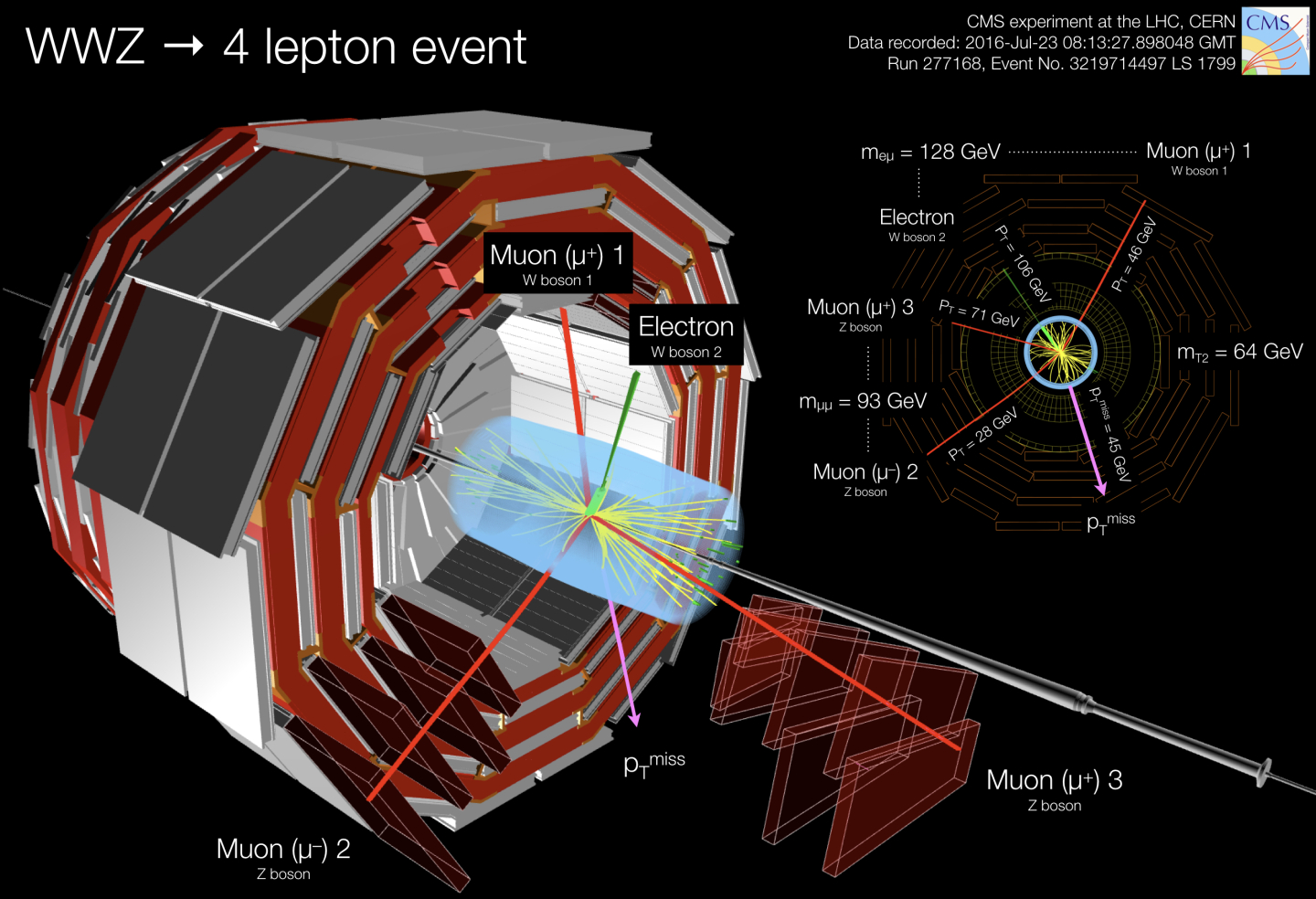
Event display of WWZ candidate event
Parallel tracking
One of the most important aspects of event reconstruction is particle tracks reconstruction. Tracking allows physicists to be able to distinguish one type of particle from another and to measure the particles' momentum with great precision. However, in HL-LHC the increased pileup leads to exponentially increased track reconstruction processing time making it computationally very challenging to carry out the analysis in a reasonable timescale. (See here) The main limitation is due to the current track reconstruction algorithm being inherently sequential making it difficult to leverage various hardware advancements in parallel architecture such as GPUs or FPGAs in the industry. Thus, Chang et al. have been working on implementing an inherently parallelizable algorithm to be used by CMS experiment in HL-LHC (See here for recent presentation). In particular, a segment linking algorithm, similar to the one illustrated here is being developed for CMS experiment for HL-LHC.
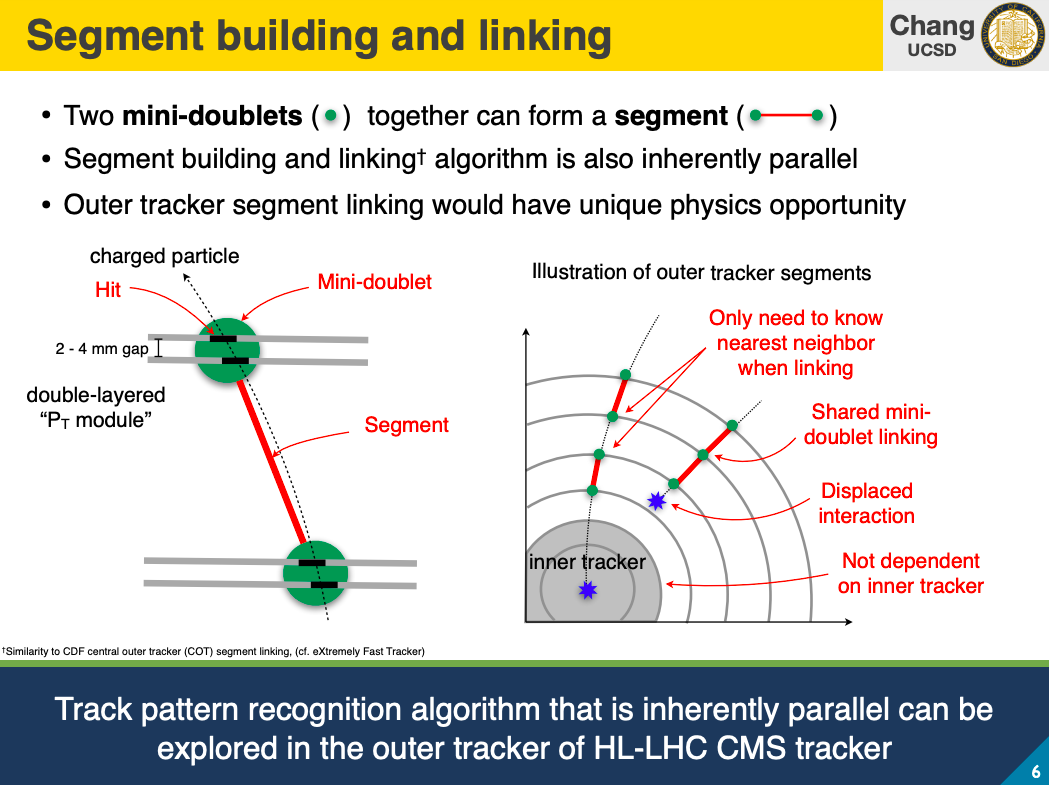
Illustration of segment linking algorithm
ATLAS Experiment
Higgs discovery and measurement
The Higgs boson is an elementary particle predicted by the SM that gives masses to other elementary particles. It was first introduced in the 60s and has been recently discovered in 2012 by ATLAS and CMS experiments.
As a graduate student at the University of Illinois at Urbana-Champaign, Chang contributed primarily to establishing the first evidence for the vector boson fusion (VBF) produced Higgs boson in exclusive Higgs boson decay channel (H→WW*) with 3.2σ. This measurement provides one of the strongest on the fermionic-coupling of the Higgs boson. In combination with his work on VBF H→WW*, the first observation of H→WW* with 6.1σ that provides the most precise single-channel measurement of the Higgs boson signal strength was established. (See CERN courier article here)
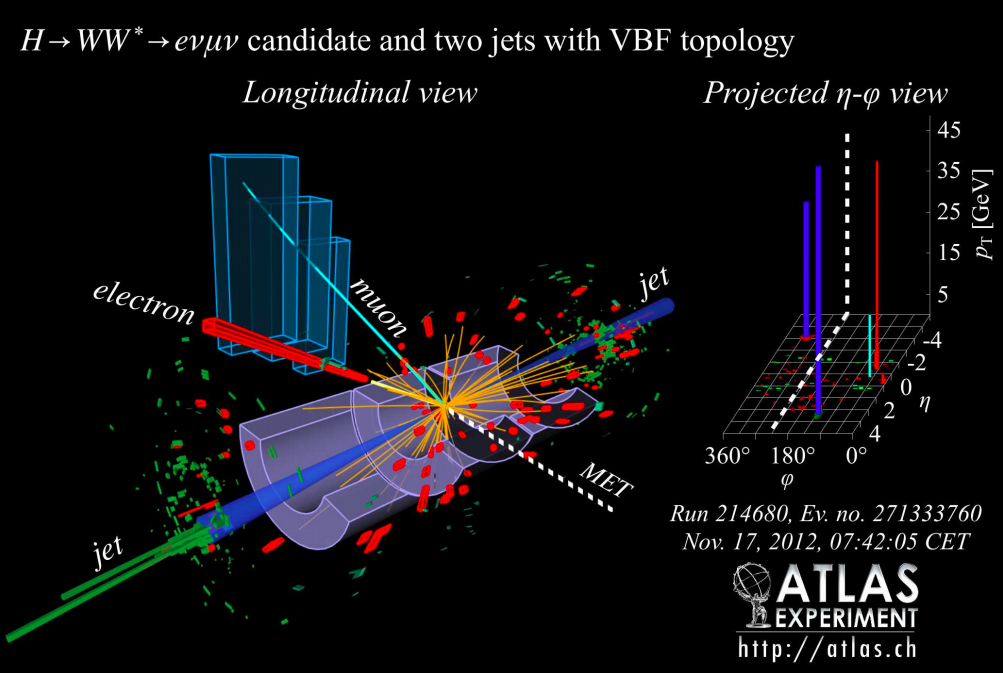
Event display of VBF H→WW* candidate event
Search for extended Higgs sector
The nature of the dark matter is a complete mystery yet it makes up 85% of the total mass of the universe. Elucidating the nature of the dark matter is therefore crucial in furthering our understanding of the universe.
Using the Higgs boson as a tool for discovery, Chang has then focused on identifying the physics of the dark matter. Chang et al. worked on developing the search for non-SM decay of the Higgs boson, H→XX→2b2μ, where the particle X is a mediator between the dark matter particles and the SM particles. If found, the discovery will make the first step in understanding the dark matter.
Trigger upgrades
Fast TracKer (FTK)
The Fast TracKer (FTK) is a hardware-based track finder for the ATLAS trigger system. Chang has participated in designing of the second stage board sub-system of FTK, and optimized second stage track finding algorithm and implemented firmware.
VBF Trigger
Chang has contributed in designing VBF triggers for the Run 2 data taking. He served as a Trigger co-Contact for the Higgs group and coordinated VBF trigger development activity.
Recent invited talks
- Observation of production of three massive gauge boson (Scheduled), December 2020, University of Pittsburgh HEP Seminar, Pittsburgh, PA
- Observation of production of three massive gauge boson [pdf], October 2020, UCSB HEP Seminar, Santa Barabara, CA
- Observation of production of three massive gauge boson [pdf], October 2020, University of Michigan HEP Seminar, Ann Arbor, MI
- Observation of production of three massive gauge boson [pdf], September 2020, University of Pennsylvania HEP Seminar, Philadelphia, PA
- Observation of production of three massive gauge boson [pdf], September 2020, University of Maryland HEP Seminar, College Park, MD
- Observation of production of three massive gauge boson [indico], September 2020, KU/KSU/UNL Joint HEP Seminar, Kansas/Nebraska
- Observation of production of three massive gauge boson [pdf], September 2020, Fermilab Wine and Cheese Seminar, Fermilab
- Observation of production of three massive gauge boson [pdf], August 2020, HEP Seminar, Korea Institute for Advanced Study, Seoul, Korea
- Observation of production of three massive gauge boson [pdf], August 2020, HEP Seminar, University of Seoul, Seoul, Korea
- Observation of production of three massive gauge boson [pdf], August 2020, HEP Seminar, Seoul National University, Seoul, Korea
- Observation of production of three massive gauge boson [pdf], August 2020, 1st Workshop on New Windows to Explore the Universe, Center for High Energy Physics, Danyang, Korea
- Multi-boson Physics at the LHC [pdf], August 2020, Seminar, Asia-Pacific Center for Theoretical Physics, Pohang, Korea
- Search for heavy triboson production in leptonic final states with full Run II data at CMS [pdf] [youtube], July 2020, 40th International Conference on High Energy Physics (ICHEP2020), Prague, Czech Republic (Virtual due to COVID-19)
- Observation of production of three massive gauge boson [pdf], July 2020, HEP Seminar, Hanyang University, Seoul, Korea
- Observation of production of three massive gauge boson [pdf], July 2020, HEP Seminar, Yonsei University, Seoul, Korea
- Observation of production of three massive gauge boson [pdf], July 2020, HEP Seminar, Korea University, Seoul, Korea
- Observation of production of three massive gauge boson [pdf], June 2020, HEP Seminar, Rice University, Houston, TX
- Observation of production of three massive gauge boson [pdf], June 2020, HEP Seminar, Harvard LPPC, Boston, MA
- Observation of production of three massive gauge boson [pdf], May 2020, HEP Seminar, UCSD, San Diego, CA
- Parallelizable Track Pattern Recognition in High-Luminosity LHC [pdf], Apr 2020, Connecting the Dots 2020: 6th International Workshop, Princeton, NJ (Virtual due to COVID-19)
- Recent results on multiboson measurements at CMS, Mar 2020 (Selected by CMS collaboration to give the talk, but the conference was canceled due to COVID-19) , Moriond/EW2020: 55th Rencontres de Moriond 2020: Electroweak Interactions and Unified Theories, La Thuile, Italy
- Measurements of triple gauge boson production in ATLAS and CMS [pdf], Jul 2019, Invited Talk, Physics Workshop At The LPC: Multibosons At The Energy Frontier, Fermilab, IL
- Rare EW multiboson at LHC [pdf], May 2019, Plenary Talk, Large Hadron Collider Physics Conference 2019, Puebla, Mexico
- Electroweak physics with multibosons at CMS [pdf], May 2019, Parallel Talk, Phenomenology 2019, Pittsburgh, PA
- Search for the SM production of WWW events, Jan 2019, Invited Talk, LHC Physics Center Physics Forum, Fermilab, IL
- Searches for new physics in the Higgs sector, Mar 2016, Experimental particle physics seminar, University of Pennsylvania, Philadelphia, PA
- First evidence for vector-boson fusion H→WW and Higgs motivated future searches, Feb 2016, HEP seminar, University of Cincinnati, Cincinnati, OH
- Advanced Analysis Technique: Squeezing out information [pdf], Nov 2015, Invited talk, Chicagoland Pheno-ATLAS Workshop, Chicago, IL
- First evidence for vector-boson fusion H→WW, Apr 2015, HEP seminar, University of Pittsburgh, Pittsburgh, PA
- Evidence for vector-boson fusion production of H→WW, Apr 2015, Parallel talk, APS April Meeting, Baltimore, MD
- ATLAS VBF Trigger Overview, Jan 2015, Invited talk, 3rd Chicagoland ATLAS-Pheno Meeting, Chicago, IL
- Higgs Properties [pdf], Sep 2014, Plenary talk, XXXIV Physics In Collisions 2014, Bloomington, IN
© 2021 Philip Chang 장충희